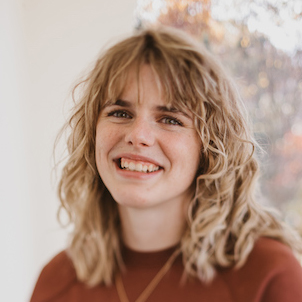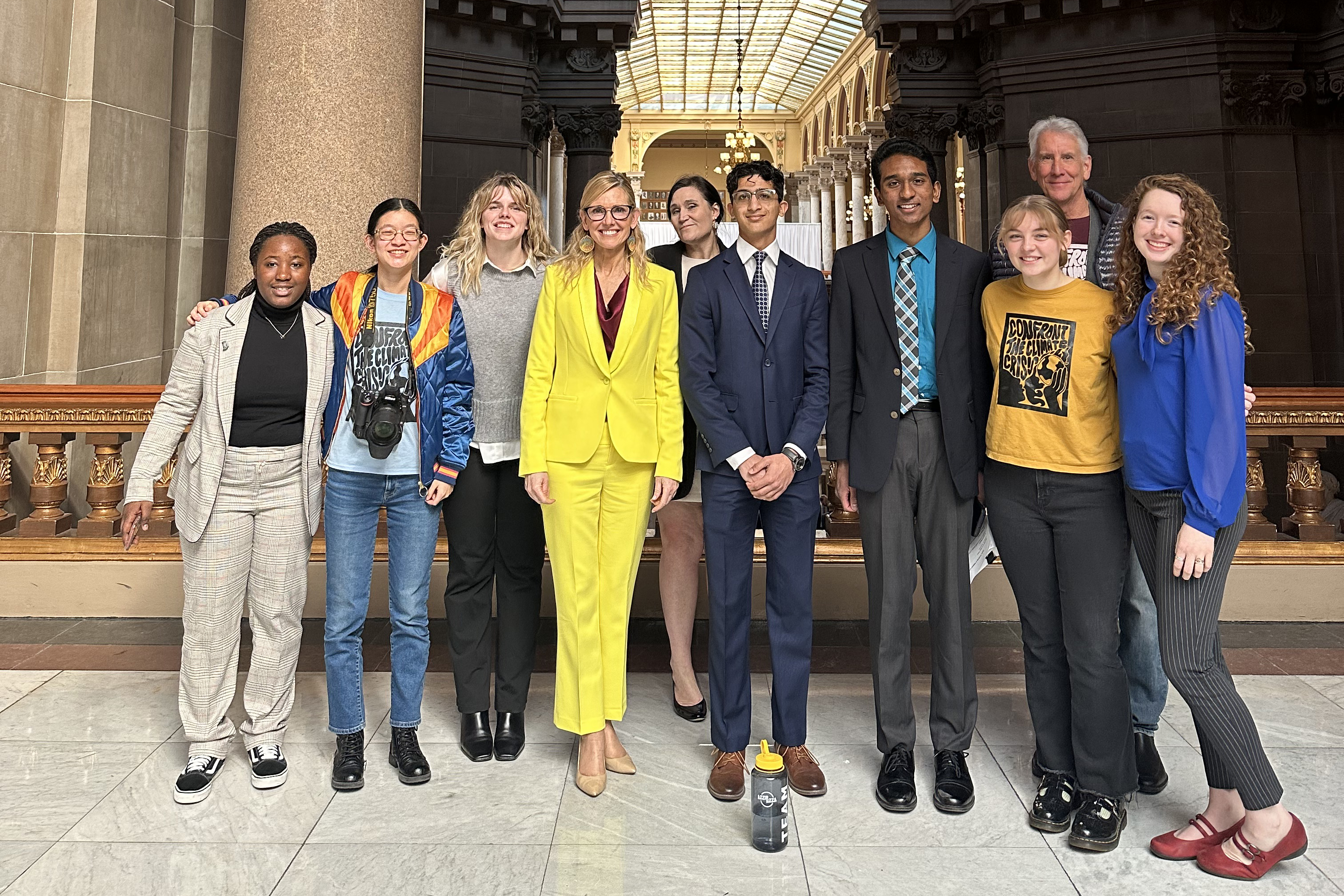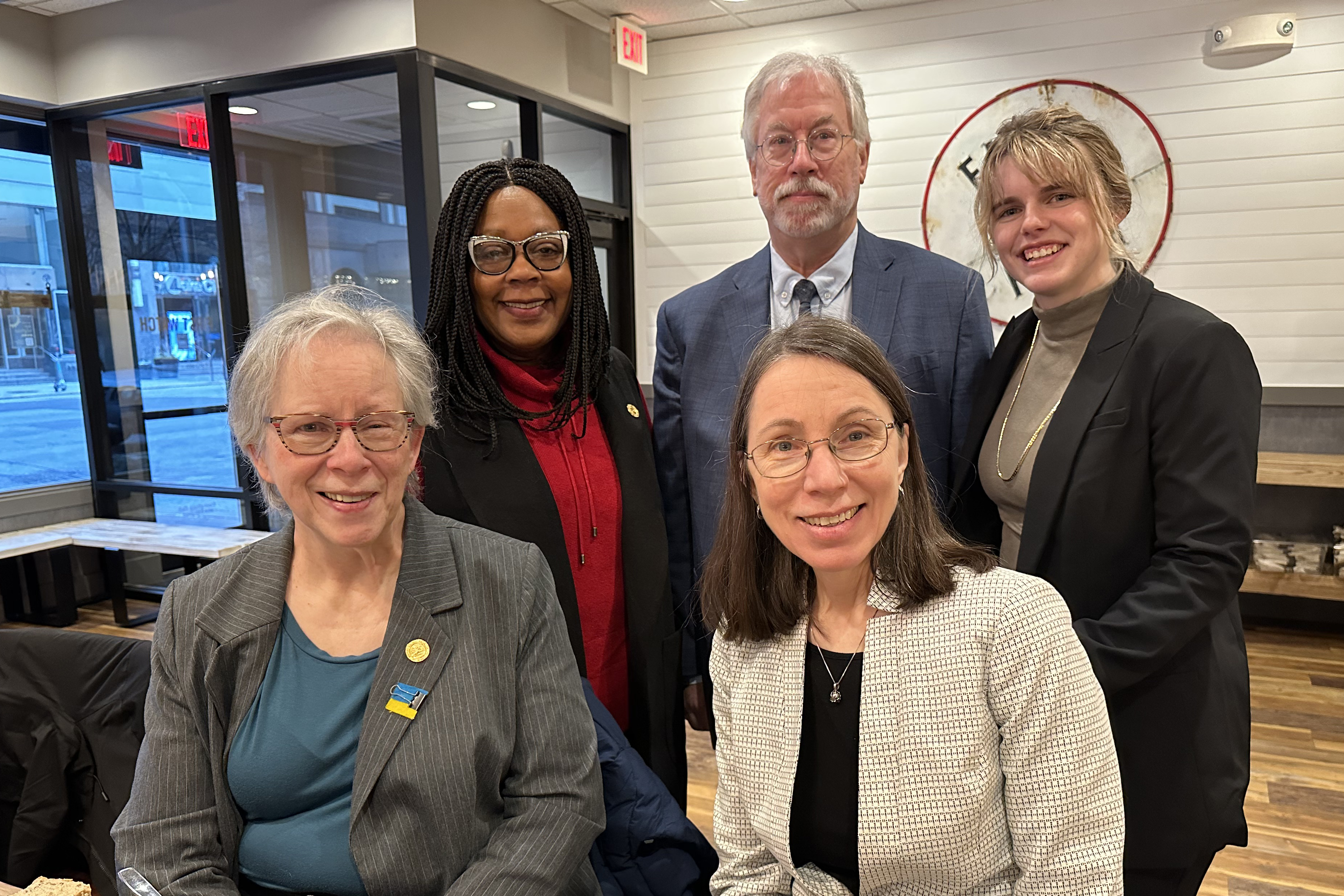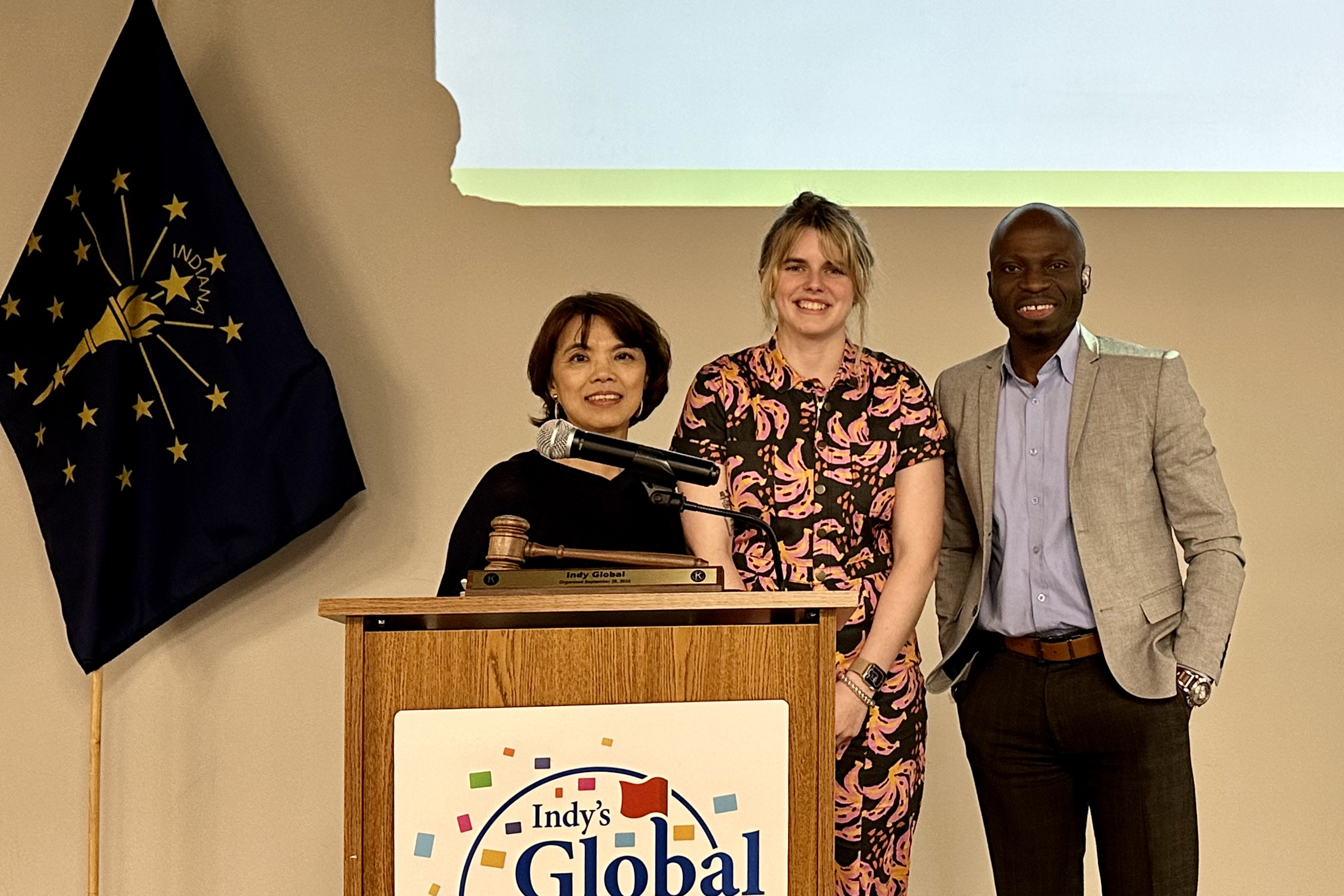This Q&A series highlights McKinney Climate Fellows alumni and their professional journeys within Indiana and beyond. The McKinney Climate Fellows program, administered by Indiana University’s Environmental Resilience Institute and Integrated Program in the Environment, connects IU undergraduate and graduate students interested in climate, sustainability, and community resilience with career experiences.
As a graduate student at Indiana University’s O’Neill School of Public and Environmental Affairs, Delaney Barber knew she wanted to make a positive impact on global environmental issues, including climate change. Through experiences like the McKinney Climate Fellows program, Barber found she wouldn’t have to leave the Midwest to do it.
In the summer of 2021, Barber became a climate fellow and updated the City of Indianapolis’s greenhouse gas inventory. The following academic year, she worked with the City of Fishers to create a climate action plan and lay the groundwork for implementing it.
After her graduation in 2022, Barber joined Indiana’s largest environmental advocacy organization, the Hoosier Environmental Council, where she serves as their outreach, energy, and climate coordinator.
The following interview has been edited for length and clarity.
What did you learn as a McKinney Climate Fellow and how did it affect your career path?
The McKinney Climate Fellows program was my first chance at getting professional experience that was specific to what I wanted to do in the climate space. Before that, there weren’t a lot of opportunities available, especially paid ones. Regular entry-level intern work is more administrative, and you don’t get to play a major part in a community's climate plan and climate analysis. That was really helpful with both of my placements, especially at the city government level.
What is your current position and what are your responsibilities in that position?
My current position is outreach, energy, and climate coordinator with the Hoosier Environmental Council. I'm technically part-time outreach, part-time climate and energy. With the outreach side of things, I'm helping with grassroots organizing, events, workshops, and social media. On the energy and climate side, I'm doing more of the program work for those workshops. I create fact sheets, write informational content for our website, present at different events on our work, or share, for example, the inflation reduction act consumer incentives.
Then, when the Indiana General Assembly is in session—January to March or April depending on the year—I'm lobbying at the state house, meeting with legislators, testifying on bills, and looking at amendment language and policy analysis.
What do you like about your current position?
I really do like the lobbying aspect. I like being at the state house, talking with people. It's a slow road, but it can be rewarding when you're having unexpected conversations or unexpected shared values with people who are like, “Oh, I haven't really thought about this before!” I'm starting to get that more.
I also love the conversations with everyone I interact with at events and workshops. Getting the chance to speak with people about how we can take action about climate change is the best.
Why did you decide to stay in Indiana to pursue sustainability work?
When I first started out, I thought climate change was this global, interconnected, messy, wicked problem. I thought of it as an international policy problem, which it is, but what I also ran into is that the US historically is the worst emitter. We have the most resources to do something about it and we're not. So instead of going outside of the United States to call other people out or say that we know best, it's better to fix what we're doing here.
On top of that, since my lived experience is in the Midwest, it just made sense. Because of how our government is structured, the federal government can only take us so far. It really is at the state and local level that we're going to see climate action that will have a direct impact on our communities.
How did McKinney Climate Fellows help prepare you for your current role?
The sustainability space is still quite small, but it is growing quickly and there are a lot of people who want to work in it. That first barrier is just getting yourself introduced and learning who you want to talk to, what those positions look like, and what skills are useful for those positions. You don't really know until you're doing it. The McKinney Climate Fellows program was great to just get into it. I learned what I liked, what I didn't like, and what those jobs actually entailed on a day-to-day basis.
Plus, it gave me those technical skills like conducting a greenhouse gas inventory. How do you do that? What does that look like when people talk about it? What does a good, actionable climate action plan look like?
What advice would you give to current students who are interested in McKinney Climate Fellows?
Do it. Be open-minded, and oh gosh, make the most of it. If it's within your means to go to the place that you're working in, please live there or visit there sometime during your program. It is very useful to go to any outreach events that the place is holding. Meet with your supervisor to have more professional and informal conversations. If you need something to succeed that you are not getting, ask for it. Learn more about what other people are doing and talk with your other fellows as well. I have a few friends from the fellowship program, and they've been so helpful in starting our careers together.
What advice would you have for students who are considering a career in sustainability and the environment?
Make sure that you have boundaries and a work-life balance. For some people, climate change is their whole life. They go to work, they work on climate change, they go home, they're reading climate news articles and listening to climate podcasts, which is great. But for me, I work on climate change during the day, but after six I need to shut off and take time for myself. I don't want to get burned out. It's a tough job. Make sure that you're not forgetting about yourself and your people.
Looking forward, what do you think young professionals interested in climate and sustainability careers should know as they enter the workforce?
Try to put yourself in spaces that you never would normally and interact with people there. See things from a different perspective. Maybe you have belief differences, background differences, value differences, but you have some shared value in the environment or how climate change is going to impact other sectors.
About the Environmental Resilience Institute
Indiana University’s Environmental Resilience Institute brings together a broad coalition of government, business, nonprofit, and community leaders to help Indiana and the Midwest better prepare for the challenges of environmental change. By integrating research, education, and community, ERI is working to create a more sustainable, equitable, and prosperous future. Learn more at eri.iu.edu.
About the Integrated Program in the Environment
Bringing together faculty, students and staff across 10 Indiana University schools, the Integrated Program in the Environment is a hub for academics, research, and activities focused on the environment. Administered by the O’Neill School of Public and Environmental Affairs, the School of Public Health, and College of Arts and Sciences, IPE is preparing the next generation of environmental and sustainability leaders. Learn more at environment.indiana.edu.






